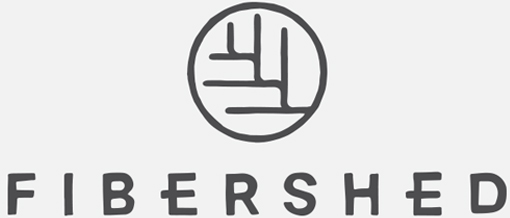Written and photographed by Koa Kalish
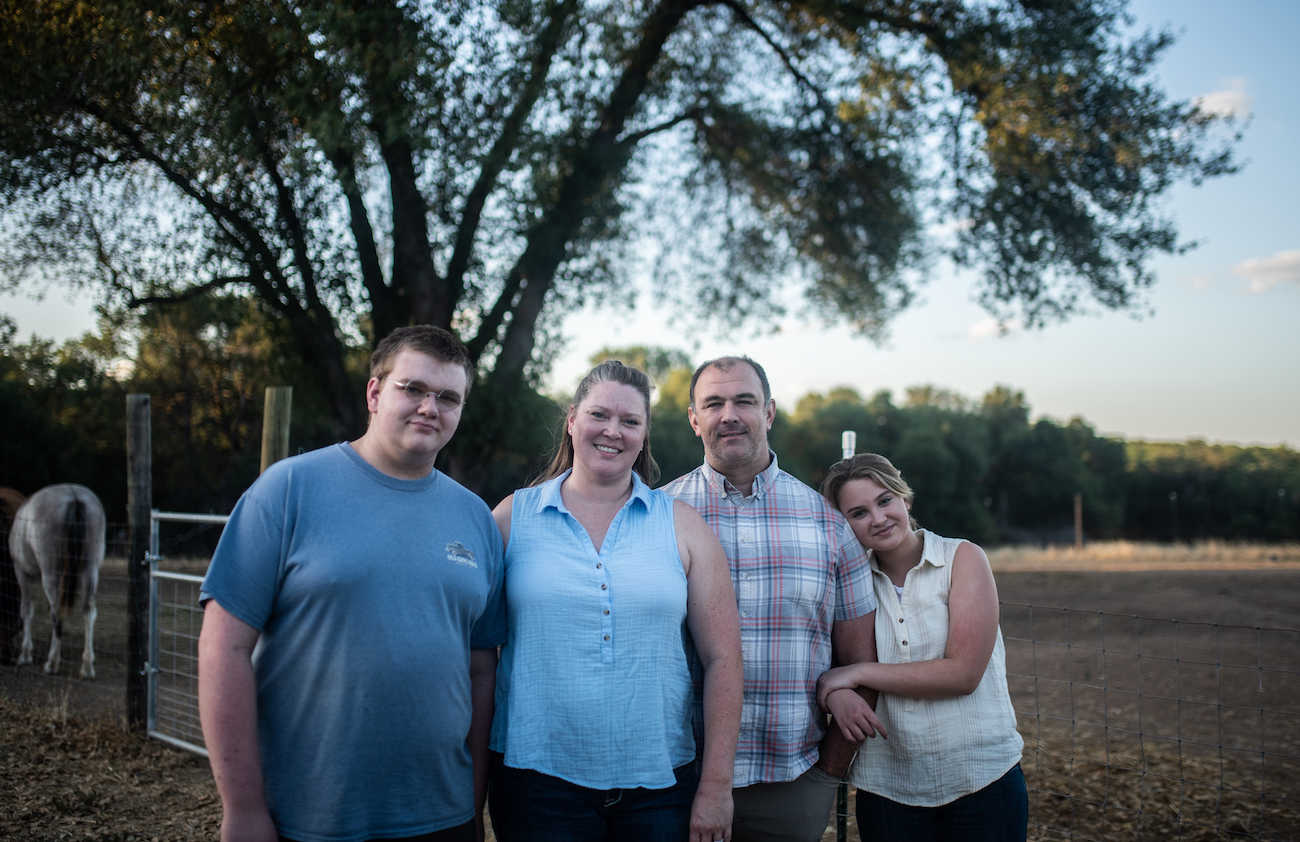
Just before the sun sets, Evelyn (Evie) offers up the evening feed to all the animals on her family’s small ranch, Owl Oak Acres, in Red Bluff, California. She goes around from pen to pen, patiently throwing dinner over the fences to the eighteen ewes, the thirteen lambs, the two rams, the two goats, the twenty chickens, and the two horses. At twelve years old, she’s more than competent; in fact, it seems like second nature to her. But, for a young kid, it’s not always the most fun thing to do.
Her mother, Dawn Graham, explains this well. “When it’s dark, rainy and cold, and Evie has to put on her muck boots, overalls, and coat; when she has to go slop through the mud and deal with screaming animals and drive out to the barn to keep the feed dry… Yes, she gets very frustrated. But, there’s this understanding: ‘this is where my food and clothing come from. I’m the one doing this.'”
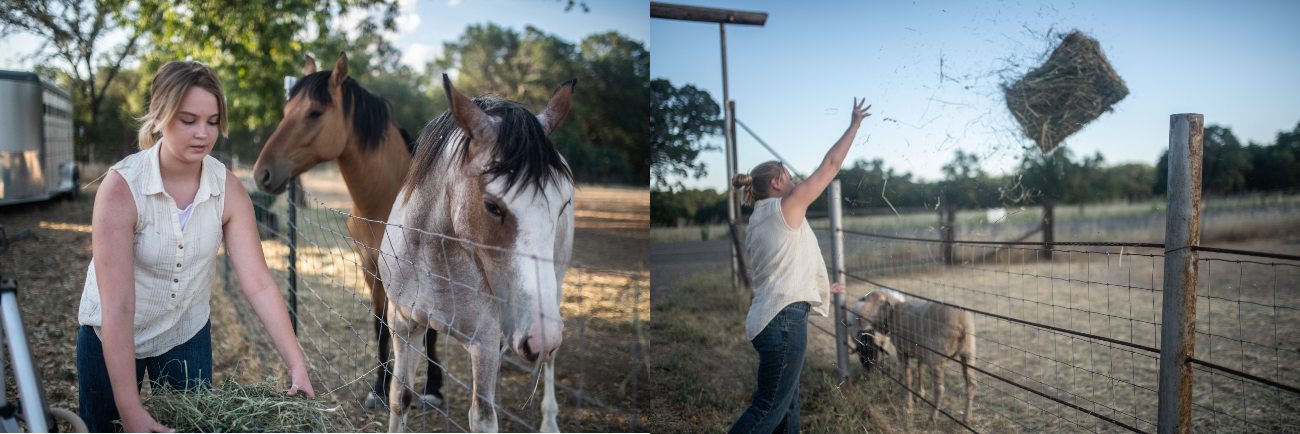
Dawn knows very well the rewards of this deep intimacy of relationship, as she was raised this way just a few miles down the road. “Growing up,” Dawn says, “we didn’t have a whole lot of money, but we ate what we raised.” This was, she states, a truer wealth. “We lived on a creek, so we had fresh blackberries. Mom would make soups, broths, sauces; she was always canning vegetables and spinning wool.” Dawn’s mother, Jane, was the one who started it all. She got a few Corriedale sheep and never turned away from them. “We were too poor to have a TV growing up, so I would sit with her and scour a fleece with her. We’d flick it, card it, comb it. I remember collecting oak galls and dying the fleeces with them too.”
When it was time for Dawn to attend college, she left the farm and moved to upstate New York. There, she met her husband, John, and with him, a very different life’s journey began. They traveled all over the country together, living from suburb to suburb. They started a family — a son, Jarod, and daughter, Evie. Eventually, Dawn began dreaming of returning to the country. It wasn’t until five years ago that they auspiciously ended up finding a home within a few miles from where she grew up.
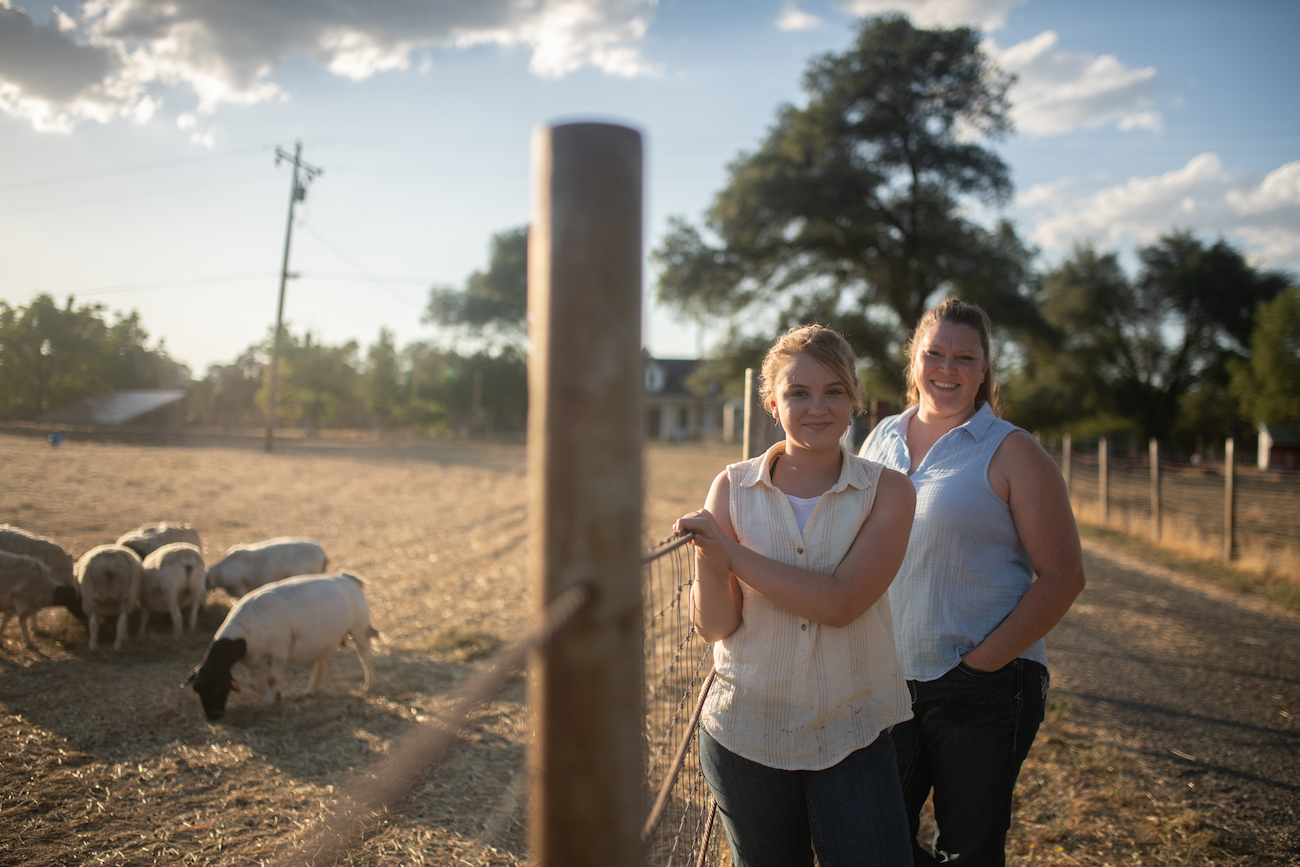
It was six weeks or so before Evie’s 8th birthday when Dawn and Evie went to look at a farmhouse on 40 acres in Tehama County that John had found on Zillow. Evie walked into the house, took one look, and immediately said, “yep, this is the one. I’m home!” And so it was. For the first year, Evie and Dawn hunkered down at the farmhouse while Jarod and John lived closer to the city, for John’s work. After that first year, they were all able to live together at the ranch. They started collecting a few sheep so that Evie could participate in the local 4H club. Their herd grew quickly, and currently, they manage eight Merino sheep for wool and twenty-five Dorper sheep for meat.
The Frucci-Graham’s have all grown accustomed to working as a team, pitching in with farm duties as needed, while also maintaining their individual roles. Seventeen-year-old Jarod is officially known as the “birdman.” John is the Ferrier, trimming the hooves of the horses and the sheep. Evie manages injections (for vaccinations), helps with the shearing of fleeces, and the evening feed for all the animals is her sole responsibility. Dawn oversees and manages everything else. There is plenty to do with thirty-three sheep, many chickens, two horses, two goats, two dogs, and three cats. The sheep take the most tending, between breeding, harvesting fleeces, and processing meat.
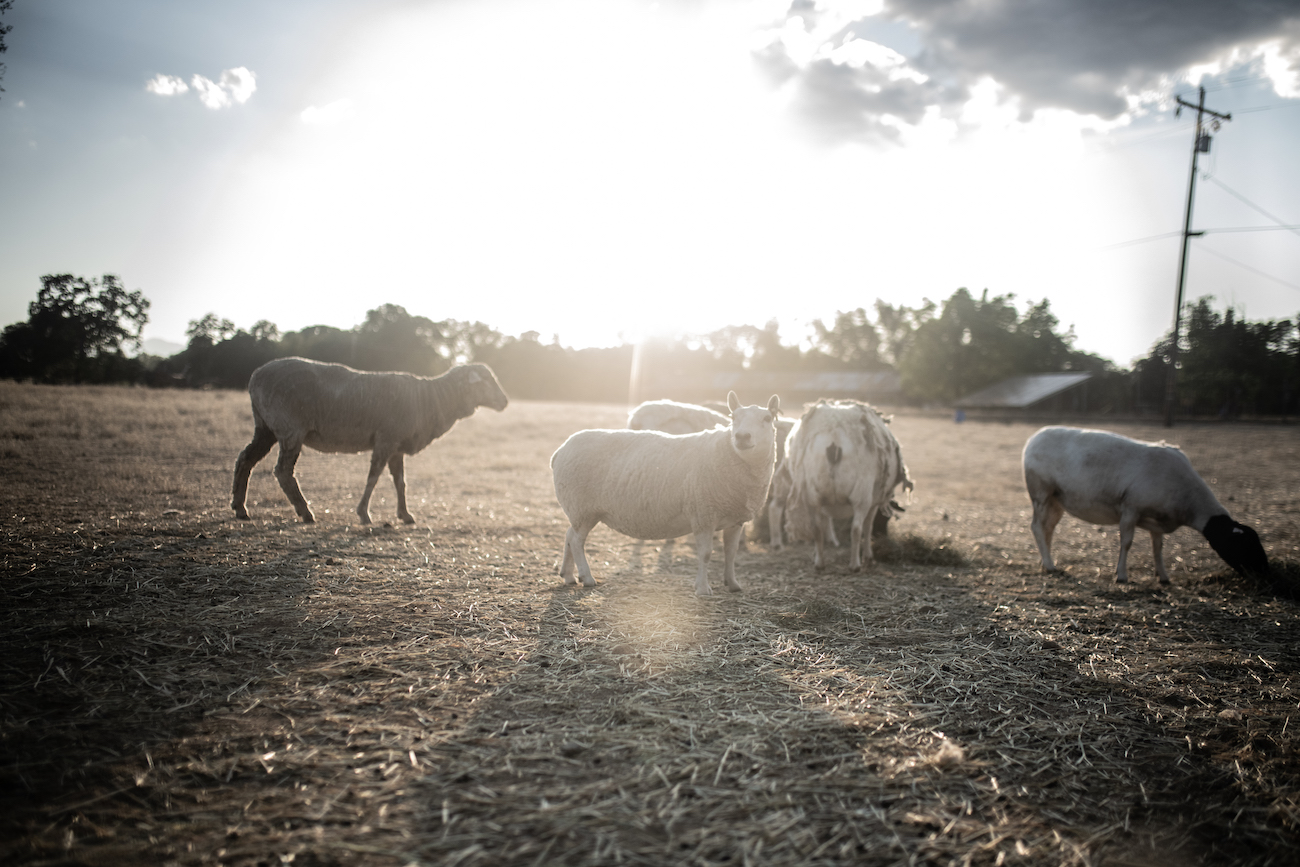
Dawn knows that the work of tending a farm may not stick with her kids forever. “Even if they don’t come back to it when they are adults, they’ll know it. They will know that a chicken doesn’t just come in Saran wrap from the grocery store.” Over time, Jarod and Evie have grown into this learning, from at first being traumatized at seeing dead chicken parts everywhere because of a raccoon burglary, to being able to say, “alright, who didn’t lock up the chickens last night?” They have gained an understanding that animals have a purpose and that both their food and their clothing have an origin. And with their own caretaking and love, that purpose and connection to origin create more meaning in their lives. “I wanted them to at least have some exposure,” says Dawn. “Well,” retorts Evie cleverly from the kitchen, “I’ve been exposed…”
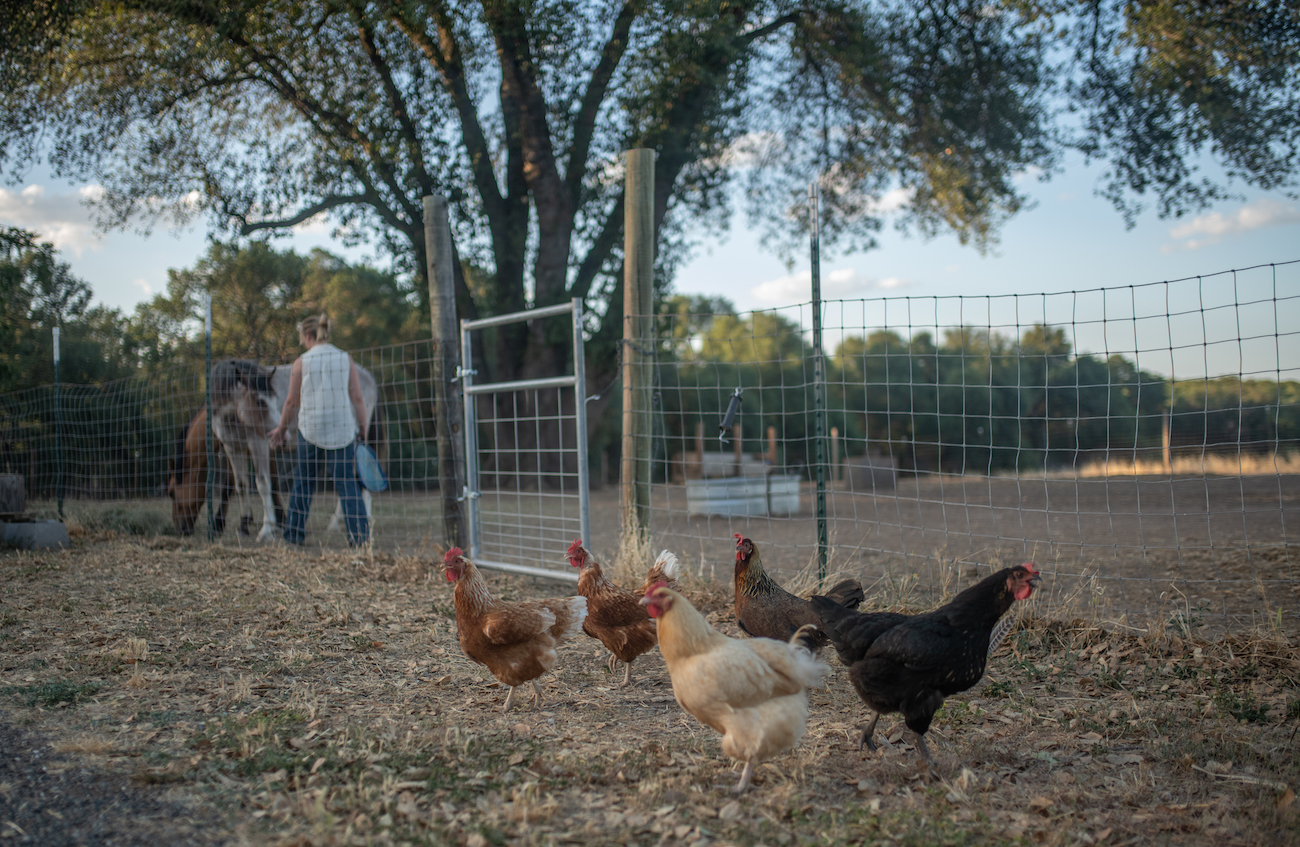
Evie loves to name the sheep after characters in her favorite books. “There’s Lady, Wilma, and Lambykins,” she says, pointing to the ewes as she squints into the light of the setting sun. “There’s Serafina from the Twisted Staff, and Charlotte from Charlotte’s Web, of course.” Meanwhile, her older brother, Jarod, watches over the baby chicks in the garage. He tenderly moves the heat lamp away and picks each one of them up, holding them delicately to his chest until they calm, and even fall asleep in his arms. “He’s known in our family as the chicken whisperer,” says Dawn, and it’s clear why that is.
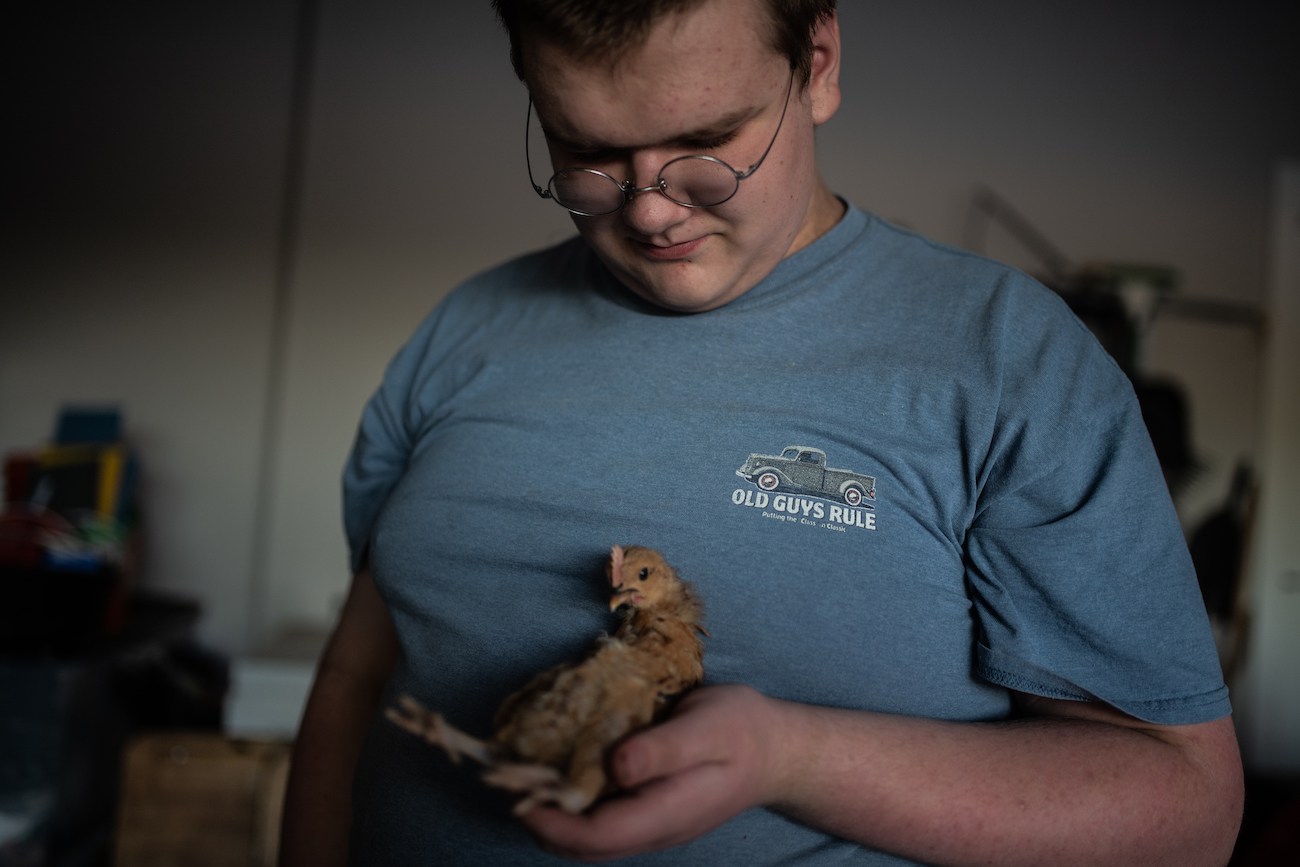
For Dawn, inspiration does not come from financial gain. “You don’t make money doing this. So, it’s about going back to my roots. It’s how I grew up. I wanted my kids to know what the agricultural lifestyle is, even on a small scale, because I think it’s something that the majority of our culture doesn’t understand from the ground up. Even here in town, people didn’t know what a Merino sheep or a fleece looked like. They ask, ‘what is that, an alpaca?’ When I see and hear that, I feel that it is so unfortunate. I read a statistic that only 1% of the US population and 25% of the global population are involved in agriculture. To me, that is a lifestyle that is worth preserving, even, on a small scale.”
On a small scale, the family is able to offer their products to support their love for having a family business. Evie gets all the money into her savings account from her fleeces, where they are sold at shows and conventions, or online through various Facebook pages. She’s hoping she can sell more local meat this year to the neighborhood. Dawn, a certified wool classer, inspects her fleeces thoroughly. “I’ll pull multiple samples from around the fleece to check lock length and the crimp throughout. There are many variables that impact the price that I take into account and try to be fair about it.” Typically, they sell their raw fleeces for $20-$25 a pound. Last year, Evie placed 2nd out of 45 at the Black Sheep Gathering, in Oregon, and sold well out of all her fleeces.
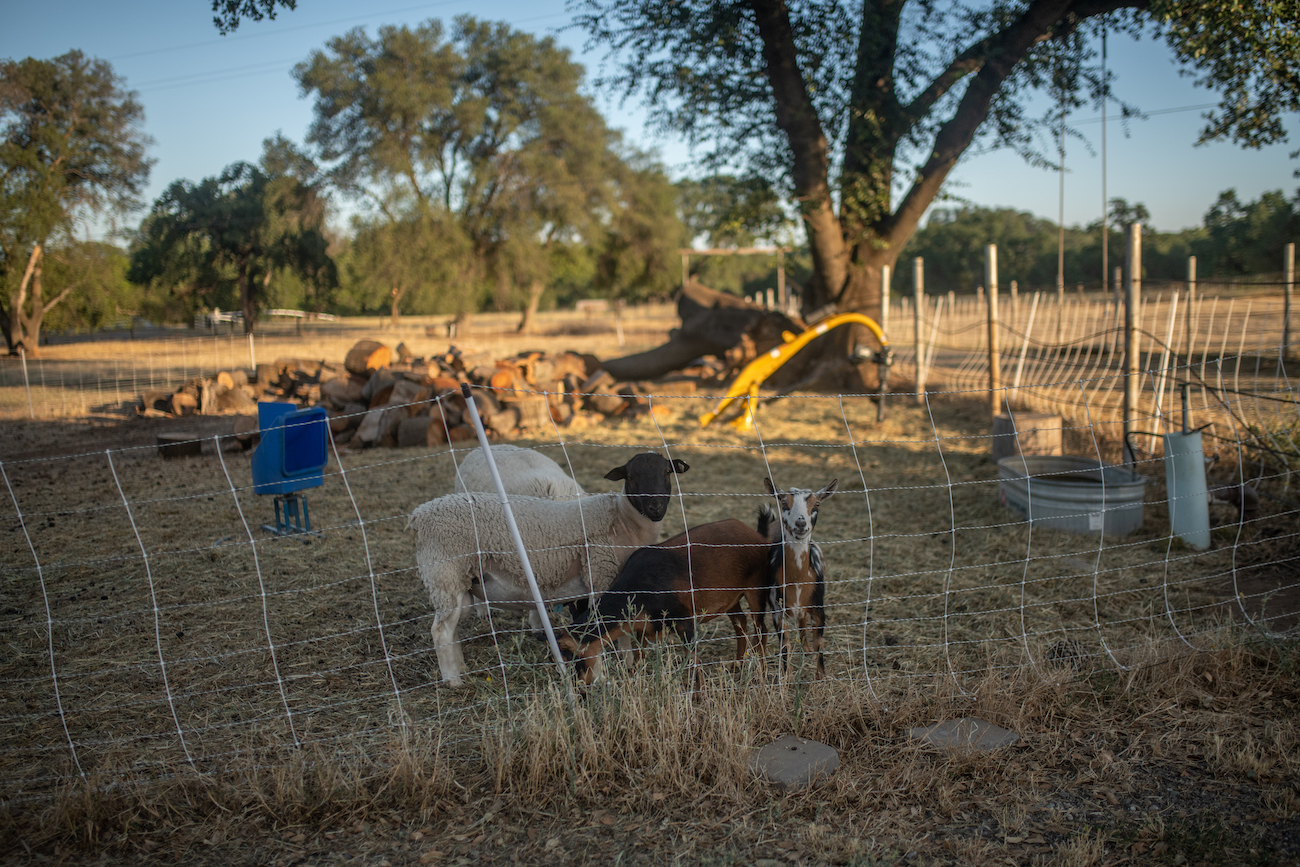
Dawn gets her understanding and love of fleece from her mother, who is a lifelong wool carder, spinner, knitter, weaver, and dyer. “She has been obsessed with wool her whole life,” Dawn remarks. Now in her 70’s, Jane still sits and spins her wool all day long. When a stroke compromised her coordination four years ago, she lost her ability to use the traditional spinning wheel. However, she quickly adapted and bought an “E-Spinner,” a tool that allows her to spin wool only with the use of her hands, and not need her feet.
“All my grandma does is spin, spin, spin,” says Evie. “She has bats of fleece and roving stuffed in her closets,” pipes in Jarod. “She has an entire dresser, with every drawer full of yarn!” Jane has taught both children how to spin. Jarod loves it just as much as his grandmother, and when he’s not repairing old phonographs or record players, he likes to sit quietly and spin, preferably with his grandmother’s old Saxony spinning wheel. Sometimes, they do it together.
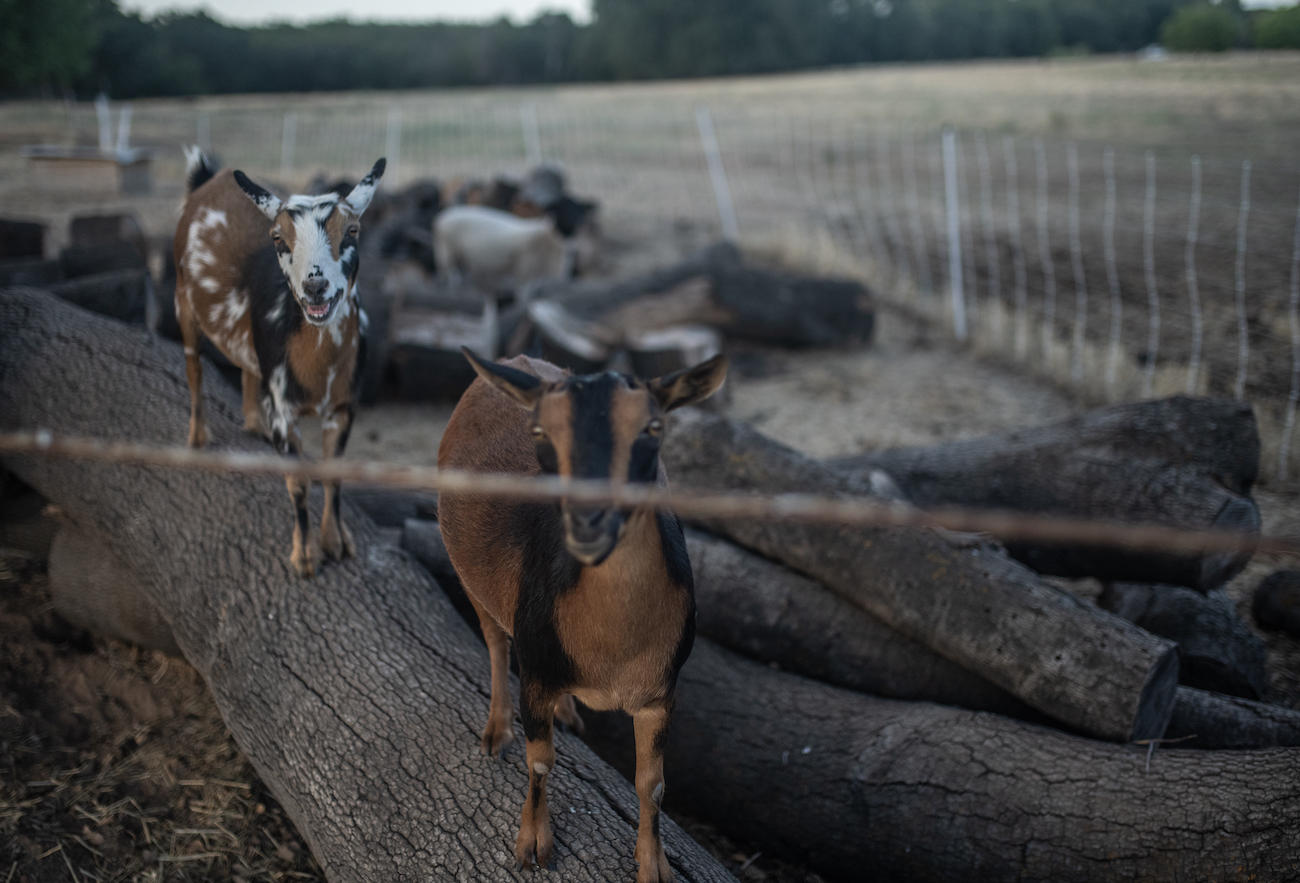
Pulling out a hat, Dawn says, “I have this hat made from fiber my mom sheared when we grew up. The fiber was sitting for thirty years until she finally knit it. She scoured it, spun it, knit it. This fiber must be… thirty years old.” Evie pipes in, “More like 30,000 years old!” Both teenagers are quick with smart remarks, and yet, their love and solidarity for the family ranch are strong. It is a shared devotion for a meaningful culture and way of life.
When asked why she does what she does, Evie answers, “I think it’s a really good thing for the community. Because you know… Wool. Meat. People need those. The animals are also very cute, that’s a big plus. I think they’re definitely annoying sometimes, but they have their benefits.”
Clearly, the benefits of small ranch life hold a value on a level beyond money. At the table, questions are asked: when we’re in this dominant capitalist culture that primarily values money, how can this make sense for a small family? How can we recreate the value system, or at least, make more room for these values? “I have a passion for this,” states Dawn. “It’s not just sheep — it’s agriculture. It’s a lifestyle. No, it’s not easy. No, it’s not a moneymaker. People need to eat. People need to have clothes to wear. So it’s important, it really is. For me, it’s about preserving that in whatever way we can.”
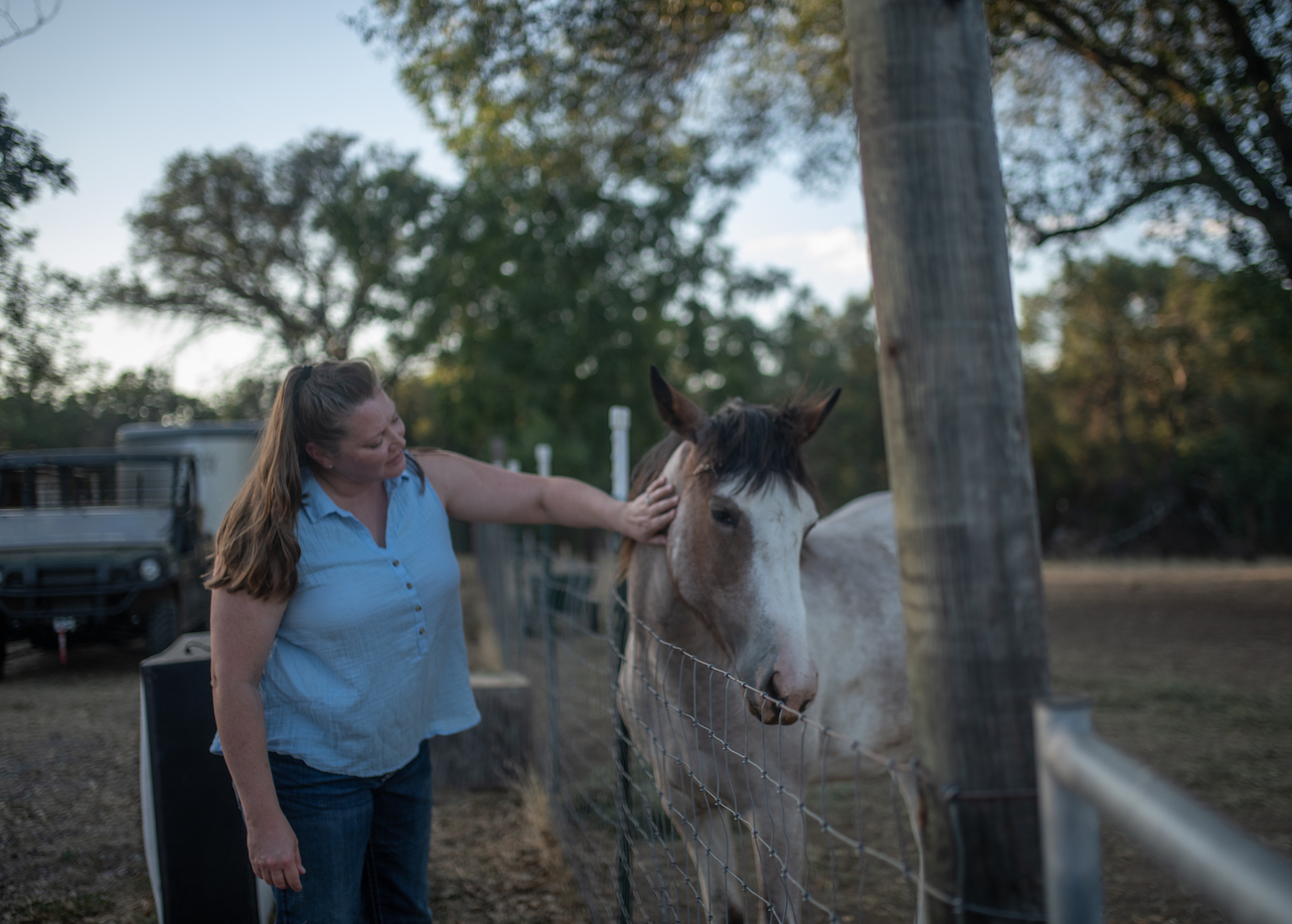
Find Dawn and her family’s products and offerings on their Facebook page at Owl Oak Acres.
